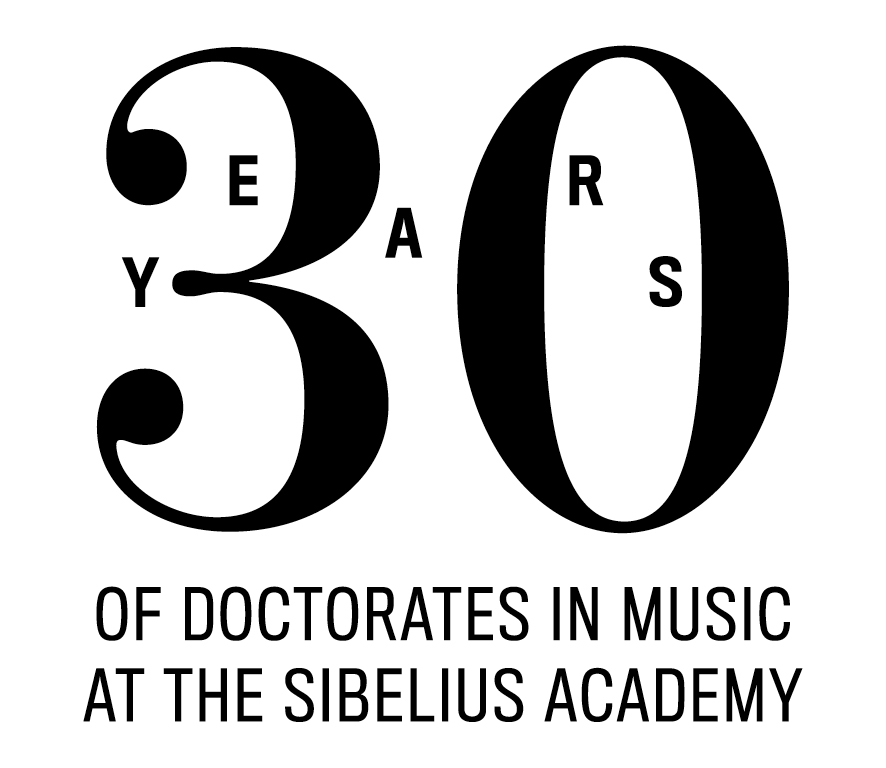Vilma Timonen: Co-constructing globalizing music education through an intercultural professional learning community – A critical participatory action research in Nepal

Events are cancelled from audience until 10.1.2021 due to restrictions related to the corona situation.
Title of the dissertation: Co-constructing globalizing music education through an intercultural professional learning community – A critical participatory action research in Nepal
Opponent:
Professor Alexandra Kertz-Welzel (Ludwig-Maximilians-Universitaet,
Institute of Music Education, Germany)
Examiners of the dissertation: Professor Alexandra Kertz-Welzel (Ludwig-Maximilians-Universitaet,
Institute of Music Education, Germany) & Dr Ailbhe Kenny (Mary Immaculate College, University of Limerick,
Ireland).
Chair: Professor Heidi Westerlund (University of the Arts Helsinki)
This doctoral dissertation addresses the increasing diversity in globalising 21st-century societies through an intercultural, inter-institutional critical participatory action research (PAR) project that engaged music educators and teacher educators from Finland and Nepal in collaborative learning. The inquiry is based on a social and educational vision according to which collaborative learning across national and institutional borders is seen as a powerful way for music teacher education to respond to the growing challenges of diversity. The PAR design highlights a more democratic, inclusive, and balanced approach to research and, as such, aims to challenge the Western hegemony in academic knowledge production. The inquiry is furthermore based on the conviction that the need for decolonising music teacher education is both real and imminent, and can be effectively addressed through creating collaborative learning opportunities for educators from diverse backgrounds. Following the works of Arjun Appadurai, we should consider the right to research a universal right, and by inclusively expanding its reach we can provide opportunities to navigate through different knowledge paths and realize the potential to rejuvenate music teacher education practices and research both locally and globally. The inquiry was guided by the following research questions: 1) What kinds of potentials and constraints does critical collaborative intercultural educational development work hold for a) music educators’ professional development, b) music teacher education practices and, c) music education scholarship? 2) What kinds of politics were involved in the critical intercultural educational development work between the Finnish and Nepali music educators and researchers? These research questions were answered in three peer-reviewed, single and co-authored articles published in international publications, each guided by their own sub-questions; the complete texts can be found in the appendices of this summary. The empirical material of this inquiry was generated from 2013- 2019 during the process of manifold collaborative activities among Finnish and Nepali music educators working towards educational development at the individual, institutional, and global levels. The analysis utilises theoretical lenses from the disciplines of music and music teacher education research, intercultural (music) education research, professional learning, and organizational studies. Article I illustrates how intercultural collaborative educational work is inevitably shaped by the affective actions and organisational micropolitics that are inherent to the process of the participating educators’ professional re-invention. The article points out the necessity of incorporating the emotional dimensions of educators’ lives as central elements in any educational development work. Article II scrutinizes the Finnish-Nepali collaboration through the theoretical lenses of a professional learning community (PLC), and explores how the features of PLC acted as catalysts or constraints in the process of intercultural educational development work. Further to that point, article II illustrates the nature of learning that took place in the intercultural PLC and argues that collaborative learning should be embedded in the institutional structures of music teacher education. Article III explores the ambivalent duality in the risk of manifesting colonial power during such work and the potential for the transformation of professional identity omnipresent in intercultural dialogues. The findings of article III highlight the potential for epistemic reflexivity in such intercultural interactions, but similarly illustrate how the colonial setting inevitably frames the dialogue and leaves the politics of reflexivity open, with no final answers being proffered. The discussion then expands upon the potentials and constraints of the critical collaborative intercultural educational development work for music educators’ professional learning, professional education, and research. Leaning on the work of Gert Biesta, it argues that ensuring music teaching that is educational requires supporting music educators to take a stance as critical knowledge workers that are supported in developing ethically engaged music teaching practices through research. The discussion emphasises that the efforts of co-constructing globalizing music education call for developing trust on multiple levels. Music educators need support to develop trust in their own abilities in uncertain situations, and they need to be seen as trusted active agents of change within their institutions. The institutional development in music teacher education calls for developing systematic collaborative practices that support the ability of music teacher institutions to act as innovative knowledge communities, both locally and globally. Moreover, it is argued that music education research would benefit from developing trust in multivoiced knowledge production, which would be supported by critical, participatory, and interdisciplinary research approaches. Finally, the discussion offers a vision for a 21st-century globalizing music education, in which music education is elevated by providing music educators opportunities for ongoing critical collaborative professional learning in institutions that can be characterized as innovative knowledge communities. This vision highlights the belief that engaging practitioners in critical, multivoiced, and collaborative research can provide a compelling environment for rejuvenating research ideas, and also contribute meaningfully to co-constructing the future of music education. The research has been conducted as part of a larger research project, “Global visions through mobilizing networks: Co-developing intercultural music teacher education in Finland, Israel, and Nepal”.
More information
Vilma Timonen
vilma.timonen@uniarts.fi

In 2020, it will be 30 years since the first Doctors of Music graduated from the Sibelius Academy. So far, over 200 graduates have completed a doctorate in music. The internationally esteemed and groundbreaking doctoral programmes offered by the University of the Arts Helsinki’s Sibelius Academy train professionals for demanding expert positions in the arts, research and educational sector. This event is a part of the anniversary celebrations.
Events are cancelled from audience until 10.1.2021 due to restrictions related to the corona situation.
Title of the dissertation: Co-constructing globalizing music education through an intercultural professional learning community – A critical participatory action research in Nepal
Opponent:
Professor Alexandra Kertz-Welzel (Ludwig-Maximilians-Universitaet,
Institute of Music Education, Germany)
Examiners of the dissertation: Professor Alexandra Kertz-Welzel (Ludwig-Maximilians-Universitaet,
Institute of Music Education, Germany) & Dr Ailbhe Kenny (Mary Immaculate College, University of Limerick,
Ireland).
Chair: Professor Heidi Westerlund (University of the Arts Helsinki)
This doctoral dissertation addresses the increasing diversity in globalising 21st-century societies through an intercultural, inter-institutional critical participatory action research (PAR) project that engaged music educators and teacher educators from Finland and Nepal in collaborative learning. The inquiry is based on a social and educational vision according to which collaborative learning across national and institutional borders is seen as a powerful way for music teacher education to respond to the growing challenges of diversity. The PAR design highlights a more democratic, inclusive, and balanced approach to research and, as such, aims to challenge the Western hegemony in academic knowledge production. The inquiry is furthermore based on the conviction that the need for decolonising music teacher education is both real and imminent, and can be effectively addressed through creating collaborative learning opportunities for educators from diverse backgrounds. Following the works of Arjun Appadurai, we should consider the right to research a universal right, and by inclusively expanding its reach we can provide opportunities to navigate through different knowledge paths and realize the potential to rejuvenate music teacher education practices and research both locally and globally. The inquiry was guided by the following research questions: 1) What kinds of potentials and constraints does critical collaborative intercultural educational development work hold for a) music educators’ professional development, b) music teacher education practices and, c) music education scholarship? 2) What kinds of politics were involved in the critical intercultural educational development work between the Finnish and Nepali music educators and researchers? These research questions were answered in three peer-reviewed, single and co-authored articles published in international publications, each guided by their own sub-questions; the complete texts can be found in the appendices of this summary. The empirical material of this inquiry was generated from 2013- 2019 during the process of manifold collaborative activities among Finnish and Nepali music educators working towards educational development at the individual, institutional, and global levels. The analysis utilises theoretical lenses from the disciplines of music and music teacher education research, intercultural (music) education research, professional learning, and organizational studies. Article I illustrates how intercultural collaborative educational work is inevitably shaped by the affective actions and organisational micropolitics that are inherent to the process of the participating educators’ professional re-invention. The article points out the necessity of incorporating the emotional dimensions of educators’ lives as central elements in any educational development work. Article II scrutinizes the Finnish-Nepali collaboration through the theoretical lenses of a professional learning community (PLC), and explores how the features of PLC acted as catalysts or constraints in the process of intercultural educational development work. Further to that point, article II illustrates the nature of learning that took place in the intercultural PLC and argues that collaborative learning should be embedded in the institutional structures of music teacher education. Article III explores the ambivalent duality in the risk of manifesting colonial power during such work and the potential for the transformation of professional identity omnipresent in intercultural dialogues. The findings of article III highlight the potential for epistemic reflexivity in such intercultural interactions, but similarly illustrate how the colonial setting inevitably frames the dialogue and leaves the politics of reflexivity open, with no final answers being proffered. The discussion then expands upon the potentials and constraints of the critical collaborative intercultural educational development work for music educators’ professional learning, professional education, and research. Leaning on the work of Gert Biesta, it argues that ensuring music teaching that is educational requires supporting music educators to take a stance as critical knowledge workers that are supported in developing ethically engaged music teaching practices through research. The discussion emphasises that the efforts of co-constructing globalizing music education call for developing trust on multiple levels. Music educators need support to develop trust in their own abilities in uncertain situations, and they need to be seen as trusted active agents of change within their institutions. The institutional development in music teacher education calls for developing systematic collaborative practices that support the ability of music teacher institutions to act as innovative knowledge communities, both locally and globally. Moreover, it is argued that music education research would benefit from developing trust in multivoiced knowledge production, which would be supported by critical, participatory, and interdisciplinary research approaches. Finally, the discussion offers a vision for a 21st-century globalizing music education, in which music education is elevated by providing music educators opportunities for ongoing critical collaborative professional learning in institutions that can be characterized as innovative knowledge communities. This vision highlights the belief that engaging practitioners in critical, multivoiced, and collaborative research can provide a compelling environment for rejuvenating research ideas, and also contribute meaningfully to co-constructing the future of music education. The research has been conducted as part of a larger research project, “Global visions through mobilizing networks: Co-developing intercultural music teacher education in Finland, Israel, and Nepal”.
More information
Vilma Timonen
vilma.timonen@uniarts.fi

In 2020, it will be 30 years since the first Doctors of Music graduated from the Sibelius Academy. So far, over 200 graduates have completed a doctorate in music. The internationally esteemed and groundbreaking doctoral programmes offered by the University of the Arts Helsinki’s Sibelius Academy train professionals for demanding expert positions in the arts, research and educational sector. This event is a part of the anniversary celebrations.